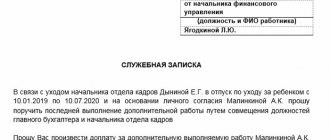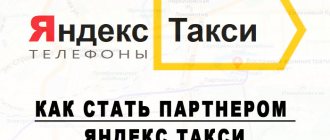How to quickly find a good job? Ideally, you need to write your resume correctly, describe your best qualities, send it to all suitable vacancies, charm the recruiter at the interview - and you can already enjoy your new position. But in reality, you will have to prepare strategically for each of these stages, including the need to prepare for the interview in order to know what questions they will ask and behave correctly during it to get the job.
We will tell you in this article what is asked during an interview and how to behave correctly when applying for a job, so that you can successfully pass it and definitely make a good impression in order to get the position.
Quick navigation:
How does the selection of applicants proceed from a recruiter's point of view?
Interviewing candidates for a vacant position includes two stages:
- Introductory (interaction with the entire flow of applicants (viewing questionnaires, talking on the phone, interviews), during the process the most suitable candidates are filtered out). On average, 80-90% of applicants are eliminated during the orientation interview. The main task of the recruiter in this case is to assess the person’s level of education, his appearance, personal and professional qualities.
- Conversation with the best applicants.
HR department employees use a lot of ways to evaluate a person:
- Questioning. They offer to fill out a special form with questions regarding professional skills and personal qualities. Application forms are reviewed and the best candidates are given an appointment.
- Biography. During a personal conversation, the applicant is asked about: education, work experience, marital status, place of residence, reason for leaving his previous job. This way you can form an opinion about the candidate.
- Compliance with the vacancy. Relevant for narrow specialists or vacancies. This interview is usually conducted not by an HR employee, but by the head of the department, who can assess actual skills and experience.
In any case, an interview is a two-way process. Not only does the organization evaluate the candidate, but the applicant examines the organization and decides whether it suits his goals and needs.
Video: How to pass a job interview?
What documents and records do HR employees keep? Use the following:
- job description (characteristics), which describes the parameters that the applicant must meet. Some companies call it a recruiting application. It lists the knowledge, skills and abilities required by the candidate;
- selection scheme or interview procedure . It is described which of the company’s employees will communicate with the applicant and at what stage;
- document reflecting the results of the interview . It notes the main impressions of HR about the candidate and indicates what decision has been made regarding him.
During the interview process, be prepared to provide contact details of your former employer. Your potential employer may want to get a detailed description of the applicant or check whether the information provided is consistent with reality.
Dialogue: Job interview
Candidate: I`ma very friendly person. Love to people helps me at solving different problems. I am responsible and diligent. I`m really good at working with personal computers and I`m very interested in programming (software engineering). When I was a university undergraduate I was twice awarded the second prize in the database programming competition.
Candidate: I am a very friendly person. Love for people helps me solve various problems. I am responsible and executive. I'm really good at personal computers and very interested in programming. When I was a senior university student, I was twice awarded second place in a database programming competition.
How to prepare for a future interview?
The applicant is sure that there is no need to prepare for the interview. Why waste energy if everything, of course, happens well, as if by instinct, and all the laurels and the vacant position will be yours. It won't happen like that! You will feel like you are at the market - walk around, look around, try your hand and just gain life experience. In addition, you are faced with the task of finding a good job and not spending six months on it.
Explore the vacancy
Check the company's operating hours, find out the number of staff. Study the requirements for the applicant, the job responsibilities of the employee for the position you have chosen. At the interview, you will have the opportunity to show yourself and, even before employment, become familiar with all the features of your future job: schedule, job responsibilities, career opportunities. Think creatively: search the Internet, write a plan or a couple of sentences on how you will be useful to the company.
Ask the recruiter how long the position has been open. If there is a high turnover or the company fails to select a suitable specialist for several months, this is an alarming sign.
Find out more about the employer
Search the Internet for the company's website and study the information on it. Ideally, this should be done before sending your resume, so as not to waste time on inappropriate options. How many years has the company been operating on the market, what are its main goals and mission, familiarize yourself with its competitive advantages. Try to remember or write down the names of managers - this will show your interest and awareness during the interview process. Attention to your future place of work is a sign that you care which company you work for.
It would be a good idea to look for reviews on different forums. Pay attention to negative reviews, but filter them carefully. If former employees unanimously complain about a specific problem, clarify these points during the interview.
During the interview, let the recruiter know that you are interested in the chosen position and are ready to develop as a specialist.
Psychologists recommend practicing the technique for 5 minutes. The idea is simple: before the interview, go into a spare room or toilet and stand in the “hero pose”: shoulders back, head held high, hands at your sides. The exercise is fun, it will give you energy and help you relax.
Prepare documents - current list
You agreed on the date and time of the meeting, learned more about the company and the proposed position. But what documents will be required and why?
Documents for the interview
We take for an interview:
- original and several copies of passport. Many companies ask you to present an identification document at the entrance, at the checkpoint. You will also need your passport to fill out the application;
- 2 copies of resume. The HR manager may not have your resume at hand, so another copy of the document will come in handy;
- work book and its copy;
- originals and copies of educational documents, certificates of completion of courses;
- recommendations and portfolio, if the vacancy you have chosen requires examples of work.
It would be a good idea to check with the recruiter in advance by phone about what additional documents you need to take with you to the interview.
Is it possible to find a job without experience?
Yes it is possible! But you need to understand that it will require effort, action, and entrepreneurship. The right attitude is important. The goal of the first job in a new field is not to immediately receive a high salary, but to gain experience and the opportunity to further develop as a professional.
Today, the labor market in Russia has become more flexible in matters of personnel movement. Employers are reviewing their attitudes and increasingly opening their doors to newcomers. In this article, you will learn how to solve the problem of employment if you do not have a record in your employment record or you have changed your occupation.
How to behave correctly during an interview?
The key rule is to arrive a little earlier than the appointed time. It is better to wait 5-10 minutes in the reception area than to make a potential employer wait.
If being late is unavoidable, notify the recruiter by phone. Don't forget to apologize and explain in a nutshell the reason for being late. Find out if you will be received late or if it is better to reschedule the appointment for another time or day.
If you decide not to go to an interview at all, notifying the employer by phone is a rule of good manners.
First impression of you - show your best side
In the first few minutes, your interlocutor forms his opinion about you, so it is important to know how to behave during an interview in order to get hired. If the candidate selection procedure has been delayed, and you are not the first applicant, the recruiter may have accumulated fatigue; you should not expect sympathy at first sight. And get upset about it too.
To win someone over, demonstrate kindness. Start with the phrase “Hello. The location of your company’s office is very good, you can get there quickly.” This will become the basis for further conversation.
Try to behave confidently, do not show irritation. During the conversation, avoid the phrases “I don’t know”, “maybe”, “not sure”, answer questions thoughtfully and clearly. Psychologists are sure that speech is a reflection of our internal state. If you speak quietly, it will show your uncertainty or doubts.
See also: Correctly filling out the “About me” section in a resume: examples for different professions
The right appearance is 50% success
Many companies have strict dress codes for employees. A business suit will be a win-win option, with the exception of professions where such a uniform is inappropriate (loaders, warehouse managers, cashiers, etc.). Women should forget about short tops and revealing tight-fitting outfits or miniskirts. For men, sneakers and tracksuits are prohibited. Clothing must be neat and clean. It’s better to try on your outfit at home before the interview: don’t you look ridiculous in it?
Dressing requirements for interviews:
- It should help you create a pleasant impression.
- It should be comfortable, it will give you self-confidence.
- Business style is desirable.
Suitable colors are gray, dark blue and white. A hat is not required for the interview. Make sure that the overall look contains as few bright colors as possible.
Many applicants are confident that only their professional skills matter, and not their dress code. This is partly true, but they also pay attention to the applicant’s appearance, especially if he has obvious problems.
Basic requirements for the applicant’s appearance:
- Well-groomed hands. A neat manicure is the prerogative of not only women, but also men. Say no to exposed cuticles and dirt under your nails, and use a moisturizing hand cream before leaving the house. Women can safely paint their nails in nude shades of varnish, but it is undesirable to grow too long nails;
- Neat hairstyle. Choose a hairstyle that won't fall apart throughout the day. Avoid protruding curls and disheveled hair; sloppy people are not attractive to you;
- Fewer accessories. You should not use an abundance of rings, massive bracelets or earrings in an attempt to show wealth. Keep it in moderation;
- Calm makeup. Minimal use of cosmetics without bright accents will show any girl as a serious and business person;
- Be careful with perfume. You can use perfume to complete your look, the main thing is not to overdo it. Otherwise, you will create a strong smell, which will cause discomfort to people.
Everyone has heard the proverb: “You are greeted by your clothes, you are seen off by your mind.” Don't miss the opportunity to make a good first impression with minimal effort. A formal business suit is not required for every position, but a neat appearance, well-groomed hands and polished shoes are a must for every person.
How to behave during an interview - basic rules
There is a paradox: the more important an event seems to us, the more we worry and the more mistakes we make when it finally arrives.
To make the interview easier, a few days before it, imagine that it has already taken place. Imagine what suit you are wearing, how the employer shakes your hand and congratulates you on your hiring - this will help replace fear with confidence in success.
To increase your chances of success, follow these basic rules:
- Smile more - an easy way to win over your interlocutor. Try not to force a smile, rather remember a pleasant or funny incident from your life and go to the meeting with the recruiter in a good mood.
- Speak calmly and clearly. Often, stress causes the voice to become tight and strained.
- Gesture in moderation. Avoid touching your face or hair too often during a conversation. It is better to place your hands on the table, keep your feet close and avoid a too relaxed posture “like at home.”
- Eye contact. It is not necessary to look directly into the person’s eyes all the time; you can select any point on the interlocutor’s face and look at it.
- Keep small pauses in conversation. Talking too often indicates that you are nervous.
And remember - if the recruiter behaves rudely, arrogantly, asks incorrect questions that have nothing to do with the topic of the work and your position, or offers to undergo checks and tests that are inappropriate in your opinion, you always have the right to refuse.
You are a free person and first of all choose a place of work that is psychologically comfortable for you. If something doesn’t suit you and you don’t want to put up with it, politely say goodbye and leave the room.
Prayer of Saint Xenia of Petersburg when applying for a job
Saint Xenia became famous for miracles even during her earthly life. When people turned to her, they quickly got what they wanted. Both during the earthly years of Xenia of St. Petersburg and after her death, many miraculous resolutions were noted related to the successful search for work. It is good if, when addressing the Saint, an icon stands in front of the person praying and a candle is lit.
O holy all-blessed mother Ksenia! Having lived under the protection of the Most High, led and strengthened by the Mother of God, having endured hunger and thirst, cold and heat, reproach and persecution, you have received the gift of clairvoyance and miracles from God and are resting in the shadow of the Almighty. Now the Holy Church, like a fragrant flower, glorifies you. Standing at the place of your burial, before your holy image, as if you were alive and present with us, we pray to you: accept our petitions and bring them to the throne of the merciful Heavenly Father, as you have boldness towards Him, ask for eternal salvation for those who flow to you, for good deeds and our undertakings are a generous blessing, deliverance from all troubles and sorrows. Stand before our All-Merciful Savior with your holy prayers for us, unworthy and sinners. Help, holy blessed mother Xenia, to illuminate the infants with the light of holy baptism and seal the gift of the Holy Spirit, to educate boys and girls in faith, honesty, fear of God and grant them success in learning; heal the sick and ailing, send down love and harmony to families, honor monastics to strive for good deeds and protect them from reproach, strengthen pastors in the strength of the Holy Spirit, preserve our people and country in peace and serenity, pray for those deprived of communion of the Holy Mysteries of Christ in the dying hour. You are our hope and hope, quick hearing and deliverance, we send thanks to you and with you we glorify the Father and the Son and the Holy Spirit, now and ever, and unto ages of ages. Amen.
What questions are asked at an interview and how to answer them
The recruiter's main task during an interview is to find out the candidate's strengths and weaknesses and determine whether he is suitable for the open vacancy. The applicant will be expected to answer the following questions:
- whether the person can work effectively for the benefit of the company;
- how professional and experienced he is;
- whether his intentions are serious;
- will he be able to take a place in the team and win people over;
- whether the applicant has enough experience for the chosen position;
- how strong is his desire to get this job;
- Is everything that the candidate indicated in his resume and told about himself true?
- how a person will behave in an unusual or stressful situation;
- How does the applicant feel about overtime?
- Will he become an example for other employees?
Your self-presentation will help the HR employee form a positive opinion about you; in addition, with the help of tricky interview questions, he will carefully test the waters.
How to get a job correctly
When forming a first impression, one can distinguish 3 schemes, each of which is triggered under the influence of some factor.
- The superiority factor is the inequality of partners in any area. When we meet a person who is superior to us in some important parameter, we tend to evaluate him somewhat more positively. Otherwise, we tend to underestimate it. Superiority is recorded in one parameter, while overestimation or underestimation occurs in many parameters.
Attractiveness factor - if we like a person purely outwardly, then we tend to overestimate him.
Attitude factor:
- Show your attitude
- Show a desire for professional development,
- Opportunities for a professional career,
- How important is this job to you?
What should you say in interviews?
There are many options for interview questions. HR departments regularly come up with new options, realizing that the candidate can be well prepared. However, most often interview questions are typical, and now I will tell you how to answer them correctly.
TOP interview questions and answers to them
Question 1 “Tell me about yourself”
The main task at this stage is to find out the skills and qualities of a potential employee and understand whether he is suitable for the vacancy. When asked about themselves, many applicants find it difficult to answer: some simply begin to retell their biography and resume, others simply remain silent in confusion. In response to this question, tell us why you chose this or that area. Describe what guided your choice of university or place of work. If you have traveled and had an interesting experience abroad, mention it.
What not to say: You don’t need to list places of study and work or talk about your love for dogs. The latter does not apply to the vacancy, and the recruiter has already read about your education in your resume.
Question 2 “Where do you see yourself in a few years”
The employer wants to know about your plans, ambitions, aspirations and desire to build a career. Will you stay in your position for a long time or are you interested in getting temporary income? This will make it clear whether your goals and the needs of the company coincide.
Instead of “I don’t know” or “I haven’t thought about it,” talk about your desire to take a higher position in this company and develop professionally. The employer is not interested in accuracy and your ability to plan; your train of thought and direction of thoughts are much more important.
What not to say: Don’t try to be overly modest or give long-winded answers like “I just want to get a job and earn a decent living.”
Question 3 “Tell me about your main weakness”
Most often, applicants choose some abstract weakness and talk about it from a positive point of view. For example, “I get too carried away with work and sometimes I don’t even keep track of time.” The candidate is pleased with his creativity, while the recruiter hears that typical tasks take the applicant longer than others. A more correct option is to say that, like any person, you have a number of shortcomings, but you are trying to work on yourself and improve.
What you shouldn’t say: “I have no shortcomings,” “I don’t want to answer this question,” “I eat a lot of sweets or I can’t quit smoking.” This is not relevant to the job and is not a proof of confidence.
See also: How to get a job without experience. Step-by-step instructions + job search sites
Question 4 “What are your strengths”
Don’t get carried away by general phrases about high productivity or the ability to easily fit into any team. List specifically the skills that will help you in this position. For example, you have experience organizing the work of a branch of a company or you won a prize in a marketing competition. If you want to brag about a social initiative, talk about it in the context of your work activity. Don't be shy or shy.
What should not be said: it is not advisable to conduct a self-presentation for half an hour; it is better to choose 3-5 positive aspects and justify them. Don't be unfounded. Communication skills, learning ability and diligence have long set everyone’s teeth on edge.
Question 5: Why should we hire you?
Tell us about your motivation and why you are interested in this position. You will be able to give a complete, reasoned answer without using general phrases if you have prepared for the interview in advance. Show your competence by briefly talking about your personal achievements using the STAR (situation – task – action – result) methodology used by the recruiters themselves. Talk about the situation, your actions and the results achieved at your previous job to demonstrate your abilities in practice.
What not to say: aggressively sell yourself to an employer, be too formulaic, or compare yourself to other candidates.
Question 6 “What do you value in a team and what do you expect from a position?”
Tell us how you are ready to help your new colleagues and what you want to learn from them. Focus on your flexibility and ability to quickly integrate into any team. The recruiter is interested in whether self-realization and professional growth are important to you. Convince him that you are ready for new challenges and achievements and want to realize your potential.
What not to say: “I want a good salary, a full benefits package and compliance with labor laws.” These are normal desires of any employee, but they do not show the motivation of the candidate.
Question 7: Why are you interested in this job?
Preliminarily evaluate the benefits of the company and this proposal in comparison with others, highlighting the most interesting points (corporate policy, complexity of the tasks, etc.). A completely appropriate answer: “I am interested in the position of an accountant in your company, since I have 5 years of experience in this field. It will help me quickly get into the workflow. Besides, your office is located near my home, I am interested in getting an interesting job near me.”
What you shouldn’t say: don’t make it clear that you have zero interest in the vacancy itself, even if this is true, and you only need money and bonuses. But in this case, it makes sense to look for other options that will motivate you more.
Question 8 “What is your main professional achievement?”
The correct answer to this question must be relevant to the job you are applying for. If you are interviewing for the position of head of the HR department, but when talking about your achievements you focus on the fact that you have increased production volume by 15% over the last year - this will give the recruiter little.
Share achievements that demonstrate your success in your previous role and that will help you succeed in this one.
Prepare for the question in advance: select the three most striking examples of your competence from your work history. These can be difficult tasks, problematic situations, or simply interesting projects. If you have little work experience, remember examples from your studies or internship.
Video: Top 5 tips on how to behave during an interview?
Question 9 “Why did you leave your previous job?”
The employer wants to hear answers to the following questions:
- Reasons that motivated you to leave your previous job.
- What might make you quit your job?
- If you quit, how will you speak about him as an employer?
Be as discreet and respectful as possible. Remember everything that your previous place of work gave you, tell us about the experience, responsibility and skills you gained there. You cannot criticize former colleagues or your manager; remove all emotions from your answer.
I don’t recommend saying that the main reason for dismissal was the amount of wages. The employer will decide that you will leave him as soon as a more “monetary” position appears on the horizon.
Even if the reason is money, you should not talk about it directly. Say that you discussed with your manager the prospects for growth and gaining experience in related projects, so you had to look for a job with a larger area of responsibility.
Question 10 “Tell me about the last conflict situation at your last job”
Conflicts in a diverse work team are inevitable; it is common for every person to make mistakes. Your new employer needs an employee who is willing to admit when he's wrong rather than shift the blame. Therefore, the best answer to this question is a brief description of the conflict and the actions you took to resolve the situation.
Question 11 “What is the most important decision you have made in the last 6 months?”
The employer is interested in the candidate’s ability to make decisions, search for arguments and checks his willingness to take risks. Every person, regardless of position, has to make decisions. Therefore, remember where and when you needed to prove yourself, and tell about it.
Question 12 “What do you prefer to do in your free time?”
Many companies have their own corporate culture. They need information about the applicant’s preferences in order to understand whether he will fit into a close-knit team.
When trying to convince the recruiter that you are the perfect fit for the position, don't overdo it. You shouldn't talk about hobbies that you really don't like. Focus on activities that help you develop as a person. For example, learning a foreign language in your free time.
Question 13 “How much do you want to earn/how much did you earn at your previous job”
The most difficult task during an interview is to negotiate a salary so as not to remain in the red and at the same time not exceed the employer’s capabilities. There is no point in lying; the HR manager is well aware of the average salary level in your industry. If the salary was higher, explain this as a percentage of sales or bonuses for fulfilling the plan. The applicant’s honest answer is proof of his confidence and adequate self-esteem.
When you start discussing salary in a new place, focus on your own merits and benefit to the company. To adequately determine the salary level, take into account several points:
- young specialist - do not ask for an amount that does not correspond to experience;
- experienced worker - focus on the average salary in the industry;
- in both cases it is worth adding 30% to the resulting figure. This is a space for bargaining.
Recruiters often ask candidates personal questions. Be diplomatic. To all questions about your marital status or desire to have children, calmly tell them that for the next few years your priority is your career and professional development.
How to map out answers to common interview questions?
Usually the questions are of the same type, but no interview will be similar to the other. You won’t be able to predict how you will be interviewed at the next company. Make a map of answers - blank options with answers to typical questions from recruiters.
What your potential employer is most interested in is:
- Your main strengths and weaknesses.
- What are your goals and directions for self-development.
- Do you have any suggestions for improving the company's performance?
- What is your position in life?
- Are you ready for professional stress?
- What problems did you have to solve in your previous job?
- Do you have long and short term goals.
- What unusual tasks did you have to solve at your last job?
- What is your biggest failure?
- How did you find out about the vacancy?
- Give an example of a situation in which you disagreed with your manager's opinion.
- How do you cope with stress?
- Do you have any questions.
See also: Current and promising professions for the next 10 years. What awaits us after 2020?
In the process of preparing the card, structure your answers so that applicants understand that you are a responsible and competent employee who will work fruitfully for the benefit of the company.
What should you not say at an interview?
List of phrases that should not be used during a conversation with a HR employee:
- "I'm sure I'm suitable for this job." You probably know your capabilities and experience and have read the job description. But the employer wants to see a completely different candidate for the position, with different personal characteristics and type of thinking;
- "give me a chance." Trying to elicit pity during an interview is a bad way to get the job you want. Look for those positions for which you are truly suitable, for which you have sufficient knowledge and experience;
- “If I get a position, I will work day and night.” The promise to sacrifice your personal life and all your interests for the sake of your career can be puzzling. A person’s value lies not in how many hours he spends at work, but in how effective his activities are;
- “I’ve done this kind of work before.” Even if you have extensive experience in your specialty, the specifics of work for this particular organization may differ. Therefore, it is better to ask about the company's goals and what they are focused on.
Do not tell your employer about the personal problems that forced you to look for work. The employer is ready to pay for your knowledge and skills, but not take responsibility for solving your personal problems.
Play the “I have offers from other companies” trump card carefully. This option will work if you are a very valuable specialist and have unique skills. In other cases, the employer will give preference to the employee who is motivated to work in this particular company. Loyalty and dedication always take precedence.
The manager or HR you are interviewing with may look very young. This usually raises doubts about his competence. But this is not a reason to try to catch him making mistakes, communicate condescendingly and show your own importance in every possible way. The wording “I will only dialogue with the CEO” will lead to you being asked to leave.
Never say at an interview that finding a job is very difficult. If during the conversation the interviewer hears that you have been searching for too long, he will naturally decide that there is something wrong with you. It is also not recommended to talk about your intention to open your own business. The head of the company expects you to achieve the goals and objectives set for the company, so your answers to him should be structured taking into account these features.
Is it possible to get a job in a large company if you have no experience?
The paradox is that it is easier for newcomers to get into large companies than into small and medium-sized businesses. The “giants” have specialized structures for training and mentoring, resources for developing new employees, and a long career ladder with starting positions.
But the nuance of employment in large companies is that they are less likely to work with “last minute” vacancies.
How to get a job without work experience if you are targeting a large company? Test the ground in advance:
- Find out about the possibility of an internship or practice at the enterprise (employees can “sacrifice” their next vacation at their old place for this, students can go according to the schedule of the educational process).
- Ask to include your resume in the personnel reserve.
- Regularly remind yourself and update your data.
- Find people in your environment who work in this company or collaborate with it, and ask for assistance.
- Participate in open events held by the company.
The Kadrof.ru website contains a list of companies, including large ones, that have permanently open vacancies for remote work, including options for applicants without experience. Check out their review: 47 companies that offer remote work.
What to do on the day of the interview?
Arrive early, 10-15 minutes earlier than the appointed time, to calm down and tune in to a positive conversation. Don't forget to take documents, a notepad and pen. During the interview process, find out the points that interest you, and do not hesitate to ask questions to the recruiter.
Salary issues are usually discussed last. Wait until the other person offers to discuss salary first.
There is no need to ask what opinion he has formed about you and whether he will hire you. It is better to check when you will be informed of the decision. Psychologically, trying to put pressure on pity will only cause irritation in the interlocutor.
If you are asked a question about job responsibilities at your previous job, say clearly and confidently: “I did,” “I achieved,” and list your achievements. If they can be digitized in the format “sales increase by 20%,” that’s very good.
Sell your skills, but do it professionally, nicely and unobtrusively. After talking with you, the recruiter should form a positive impression.
How and to whom to pray to get hired
The conversion will bring the desired result only if a person takes a responsible attitude towards the place where this ritual is performed. It is recommended to retire, tune in to dialogue and clearly formulate the petition you would like to make. If you mutter a prayer without putting your soul into the request, it will not yield results. It is necessary to speak in such a way that Heaven hears the appeal.
It is recommended to pray many times before an interview;
- It is recommended to know the prayer by heart;
- you can formulate appeals without adhering to exact expressions, the main thing is that it is correct;
- it is recommended to imagine the face of the great martyr to whom you are calling for help;
- be sure to have faith in prayer and your strength;
- do not voice to anyone your plans to turn to higher powers;
- You also need to make efforts on your own; you should not hope that without your efforts something will work out.
If the appeal did not help, after the interview it is necessary to turn to heaven with repentance, perhaps because of the misconduct in the past days, the Saints cannot help. If you deeply and truly repent of what you have done, ask for help again - you will definitely be heard. It is recommended to go to the sanctuary and confess.
Prayers for work are addressed to the following saints:
- Saint Matrona;
- Saint Tryphon;
- Saint Spyridon;
- Nicholas the Wonderworker;
- Seraphim of Sarov.
The prayer will give the best results if it is read during the new month. It has a positive effect on professional activities.
It is best to plan to apply for a job on Saturday, but if we are talking about career growth, then Wednesday will be a more favorable day.
Features of a Skype interview
Many companies prefer to conduct the initial interview remotely via Skype. This is a preliminary selection of candidates who will later be invited to a full meeting with an HR employee.
During a video interview, the recruiter is able to identify the candidate’s strengths and weaknesses, find out his motivation and intentions.
To ensure the conversation goes smoothly, the candidate should consider:
- Take care of high-quality picture and sound.
- Make sure that nothing unnecessary gets into the frame in the background. Ask your household members not to disturb you for a while.
- Prepare for the interview (shave, comb your hair, put on decent clothes).
Many people feel insecure when talking on Skype or on the phone. If your voice also sometimes breaks from excitement, tune in to the conversation in advance: do a few breathing exercises, think about good things, try to control your voice. Employment is important, but you shouldn’t give it too much importance in life.
Show your readiness
During the interview, the recruiter evaluates not only your professional skills, but also your character traits. So, even if you don't have any past successes or unique abilities to tell, show that you're willing to learn and grow. Tell us why you want to work in this particular position and in this company. Share your plans for the future. Maybe you're looking to move up to a more senior position and take your business to the next level? Speak with enthusiasm and dedication, then the interviewer will definitely appreciate your zeal.
The recipe is always the same: be only yourself, so that later you don’t have to pretend to be anything if they take you.
Christina Mets, HR Manager at Aviasales
What to do in case of refusal
Do not despair and become despondent. This is definitely not the last interesting vacancy in your city; an interesting position will appear soon. Highlight possible mistakes on your part and try to correct them. Get rid of the radical thoughts “I’m a failure and won’t be able to achieve anything” from your head. Most likely, the refusal to hire you has nothing to do with you personally. The employer is simply looking for an employee based on other criteria.
The most common mistakes:
- fear of communication . An interview should be treated not as a casting, but as a mutual choice. The candidate and the recruiter are in an equal position. Understand this, and you will get rid of trembling hands and a pinched voice. An employee of a recruitment agency will not test your strength; he wants to find a suitable professional among dozens of resumes as soon as possible;
- no preparation. Even if you have an excellent portfolio and extensive work experience, prepare at least minimally for the meeting and learn more about the company and the position. Impromptu is good, but not for an interview;
- communicating with the recruiter like your best friend . Some applicants forget themselves during the conversation and move on to too personal topics. Even if you have an interesting hobby and it seems to you that the HR specialist has a positive attitude towards you, you should not devote him to the details of your life. So be consistent and stay on topic;
- bad mood or feeling. You shouldn't go into an interview stressed, sick or upset - this will not help you concentrate and perform at your best.
No matter how excellent a specialist you are, no one has canceled the rules of decency. Behave politely and tactfully, do not argue with your interlocutor and do not prove that you are right.
Prayer to Saint Tryphon
The words of the prayer addressed to Saint Tryphon help in difficult financial situations, so a petition for a job should be offered to this saint.
Oh, holy martyr of Christ Tryphon, quick helper and quick to obey the representative of all who come running to you and pray before your holy image! Hear now and at every hour the prayer of us, your unworthy servants, who honor your holy memory in this all-honorable temple, and intercede for us before the Lord in every place. For you, saint of Christ, shone forth in great miracles, exuding healing to those who flow to you with faith and intercede for people in sorrow, you yourself promised before your departure from life with His perishable prayer for us to the Lord and you asked Him for this gift: if anyone in any need, sadness or illness of soul or body, when you begin to call on your holy name, let him be delivered from every source of evil. And as you sometimes did, the daughter of the Tsar, in the city of Rome, tormented by the devil, you healed her, her, and us from his cruel wiles, save us all the days of our lives, especially on the day of our last breath, intercede about us. Then be our helper and speedy driver of evil spirits, and our leader to the Kingdom of Heaven. And as you now stand as saints at the Throne of God, pray to the Lord that we too may be partakers of ever-present joy and joy, and that with you we may glorify the Father and the Son and the Holy O Comforter of the Spirit forever. Amen.
Orthodox prayers for employment can be addressed to any Saint. In order for them to be heard, it is necessary to read them sincerely, with firm confidence that they will be heard, and the expected help will be received.
( 6 ratings, average: 4.00 out of 5)
Types of Interview
There are several types of interviews:
- Dialogue with the person working with personnel. This person is not an employer, he selects personnel based on his provided requirements. He can also draw up several resumes of prospective candidates and send them for consideration to the manager, who will choose who is most suitable for him.
- Prestigious firms often have peer interviews, which cause a lot of stress for the candidate. It is conducted by the head and several of his assistants, who have the right to ask additional questions. Then, they let the applicant go for a few minutes to “walk”, after which they collectively make a decision to refuse or accept him for the job.
- When large companies receive a huge number of candidates, in order to reduce time, they arrange group interviews. All applicants are divided into several groups and asked to enter the office one by one. Next, managers interview all people and hire those who are most suitable for working at the enterprise.
How to conduct an interview?
Before conducting any interview with a potential employee, he must be notified by sending an invitation by email or telephone. The applicant, in turn, must respond to the invitation.
It depends on the insight and attentiveness of the recruiter whether he will notice a suitable candidate among the stream of candidates or not. To ensure that the interview with the applicant is effective, we suggest that you follow the following rules :
- Be polite and tactful . Even if the position requires a stress test, which means you will definitely have to take the applicant out of their comfort zone at some point, it is advisable after this test to explain that this was a stress-resistant interview and then continue the conversation in a friendly manner.
- Listen carefully to the candidate - it is in your interests not to miss a suitable candidate, even if due to some of your personal preferences you did not like him. Try to always remain objective.
- When going through interviews, be sure to clearly state the requirements for the vacancy , at this moment pay especially close attention to the candidate’s non-verbal signals.
- No matter how it sounds, the candidate should also like you . You are the face of the company; it depends on you whether the candidate will confirm his interest in working for you or not.
We'll also talk about how to interview a candidate in the next video. Read the article at the link for details.
Dialogue at the interview in English with translation
- Hello Anna. - Hello. — You are applying for an editorial job. - Yes. — You have a wonderful resume. Tell me more about your work in the newspaper. — I started working as a freelance reporter. For the year I grew up to be an assistant editor. My specialization is economic news, interviews with key persons of companies. - This is exactly what we need. Do you know the conditions that we offer? - Yes, I read it on the site. —Are you satisfied with everything? — Yes, but I would like to have a more flexible schedule. - Good. If everyone is happy with everything, then congratulations, you are accepted, bring the documents to the personnel department. Welcome to the team.
- Exuse me, may I come in? - Yes, sure. Have a seat. So, what's your name? — My name is James Smith. - How old are you? - I am 20 years old. - Okay, James, where did you work before? — I worked as a cashier at McDonald's. — Did you quit of your own free will or were you fired? - I quit myself. Work distracted me. - OK. So you have no experience in selling cars? - That's right. — You must understand that we need qualified workers. - Looks like I won't be able to get this job. However, I think that there is an excellent candidate for this place! - Who are you talking about? — My father is good at cars. Moreover, he has a lot of free time! - Okay, how old is your father? - He's 45. - Hmm... I think we'll call you back later. - OK. Be sure to call. Here is his number: 81341341313. - I need to write down his first and last name. - Yes, sure. His name is George Smith. - Thanks a lot. - Thank you too. - Have a good day! - Goodbye! - Goodbye!
26 Jun 2020 glavurist 436
Share this post
- Related Posts
- Loan agreement between individuals sample 2020
- Summoned to court for failure to pay traffic fine
- Characteristics of an economics student from an internship
- Searching for an individual’s tax identification number using passport data
Rules for conducting a job interview - example dialogue
- It is the applicant who experiences the most anxiety. Of course, because of such a side feeling, it is difficult to understand what a person is like; in this case, it is customary to relieve tension. The employer can ask how quickly the person found this place, whether he likes the company, how the weather is outside, and any other non-binding question. As a rule, after several minutes of such communication, the applicant calms down and feels more confident;
- The next stage of the interview is the interview itself. A person looking for a job must answer a few short questions. Often, the employer asks about what kind of work experience the candidate has and about his skills. In this case, you should not lie just to pass the interview. If you don’t have such skills, it will be easily revealed during work. An employer is the same person who does not want to spend a long time on an interview, so you need to give short answers to the question without additional frills. If the applicant has just received an education diploma, then he can report on what kind of work experience he has. Some organizations also provide for assessing the candidate using psychological testing;
- After the applicant has answered all the questions, he can ask what interests him , now, in order to find out whether such a position is suitable for him.
- After the interview, a decision is made. First of all, the employer accepts it based on the data provided for him. He can hire a person, provide him with an additional interview, or refuse him. As a rule, the employer does not inform that the person did not pass the interview; he promises to call him back or says that the staff is full and he needs to come at another time. There are also cases when the applicant himself refuses a position, for example, because the work schedule does not suit him.
Interesting: Log in to the personal account of the PFR of an individual
Every living creature strives to live in comfortable conditions. In order for a person to surround himself with maximum comfort in life, he needs to have a prestigious position. Qualified organizations always carefully select personnel. In order to get a job, it is not enough to have a good education and work experience, you also need to be able to pass an interview with dignity.
If they don’t hire people without experience, where will the experience come from?
A large percentage of people are faced with a vicious circle: without experience, a decent job cannot be found, and without work, this experience cannot be gained. It is important to know that often refusal of a job occurs not because of a person’s lack of experience, but because of his inability to present himself and his qualities. At an interview, not every personnel officer will be familiar with a resume that contains information about a lack of experience. It is important to show your personal qualities and teach them profitably.
In the sphere of interaction between a boss and a subordinate, the future employee is a commodity, and the boss is a merchant, and the more competently he presents himself, the higher the likelihood of being hired.
Interview stages
The interview itself often consists of two parts - practical and psychological.
In the practical part, the applicant may be asked to take some tests or tasks. For example, calculate the profit of an enterprise or income tax .
In the psychological part, the applicant is asked a number of questions and may also be put in a stressful situation in order to test his ability to make decisions in non-standard conditions.
At the next stage, the applicant can also ask questions that interest him in order to finally determine how interested he is in this position. He may also inquire about the timing of a decision regarding his employment.










